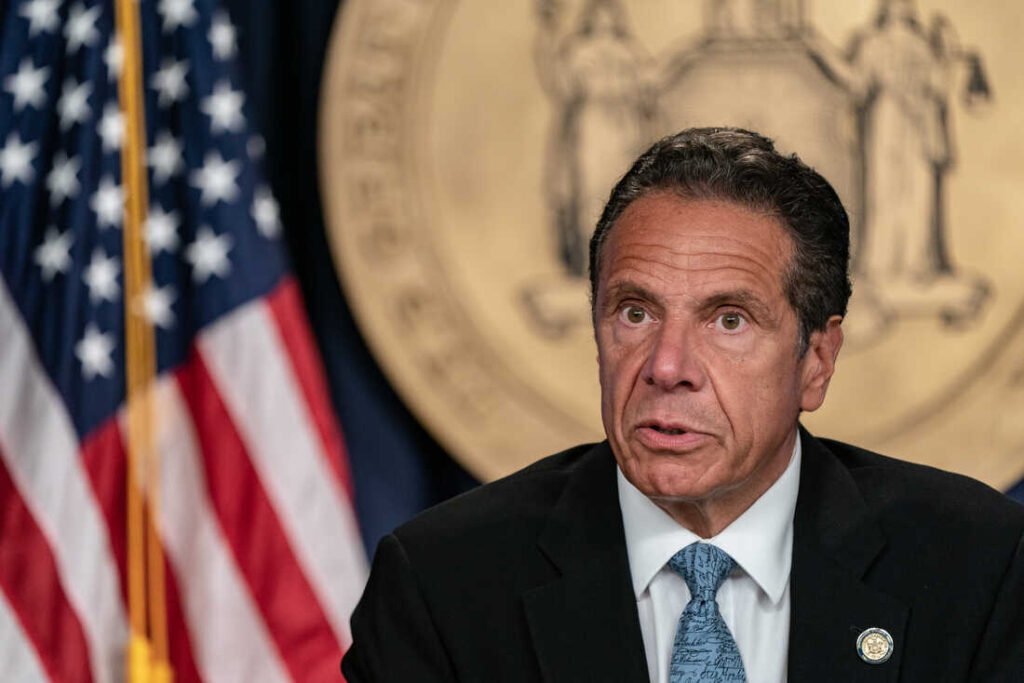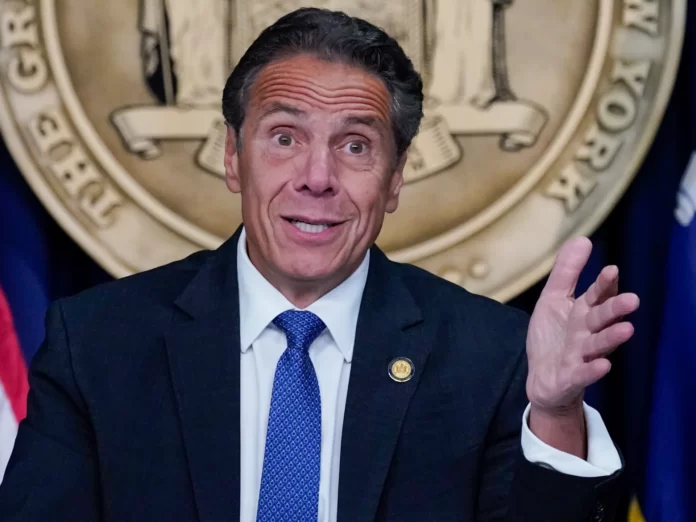In a shocking development, the Department of Justice (DoJ) has revealed that former New York Governor Andrew Cuomo faces serious allegations of sexual harassment from 13 female employees. The accusations, which have come to light after a thorough investigation, cast a shadow over Cuomo’s political career and raise questions about workplace conduct in one of the country’s highest offices.
The DoJ, following a comprehensive inquiry into the allegations, has substantiated claims made by a group of 13 women who served in various capacities within Cuomo’s administration. The accusations range from inappropriate comments to unwarranted advances, creating a distressing narrative that implicates the once highly regarded governor.
The findings have triggered widespread reactions, with advocates for women’s rights and politicians calling for accountability and justice. The severity of the allegations has prompted renewed discussions about the prevalence of workplace harassment and the urgent need for systemic change in addressing such issues at all levels of government.
The DoJ’s investigation revealed a pattern of misconduct that allegedly spanned several years, indicating a systematic failure to address concerns within Cuomo’s office. The affected women, who had previously voiced their grievances, found their claims validated by the investigative process, signaling a critical moment in the #MeToo era.
More About His Sexual Harassment Case
Cuomo, who resigned from the governor’s office amid a separate scandal involving allegations of mishandling COVID-19 data, now faces intensified scrutiny and potential legal consequences. The DoJ’s findings have prompted a fresh wave of demands for accountability, with calls for a thorough examination of the culture within Cuomo’s administration during his tenure.

The revelations have broader implications for the political landscape, as they shed light on the challenges faced by women working in positions of power and the importance of creating safe and respectful workplaces. The allegations against Cuomo, who was once considered a prominent figure in Democratic politics, underscore the need for comprehensive reforms in addressing and preventing sexual harassment within political spheres.
Prominent figures within the Democratic Party have expressed their dismay at the findings, emphasizing the importance of holding leaders accountable for their actions. The investigation’s outcomes have triggered discussions about the role of political parties in ensuring the ethical behavior of their members and the potential impact on upcoming elections.
As the DoJ’s investigation unfolds, questions linger about the broader implications for Cuomo’s political legacy and the potential legal consequences he may face. The revelations have not only sparked conversations about accountability but have also prompted a reexamination of the mechanisms in place to address sexual harassment within government offices.

The brave women who came forward with their experiences have become catalysts for change, prompting a national conversation about power dynamics, accountability, and the urgent need for systemic reforms. The DoJ’s investigation serves as a crucial reminder that no one, regardless of their position, is above scrutiny when it comes to allegations of sexual harassment.
The revelation of sexual harassment allegations against Cuomo has ignited a broader conversation about the mechanisms in place to address such misconduct within political circles. Advocates for workplace safety and gender equality argue that the case underscores the importance of implementing effective reporting structures, whistleblower protections, and comprehensive training programs to prevent harassment in professional settings.
The impact of these allegations extends beyond Cuomo’s personal legacy, influencing the public’s trust in government institutions. The DoJ’s investigation raises questions about the effectiveness of internal oversight mechanisms and the responsibility of political leaders to create environments free from harassment. The scrutiny surrounding Cuomo’s case reinforces the notion that accountability must be a cornerstone of governance, regardless of political affiliation.
The #MeToo movement, which gained prominence in recent years, has brought to light numerous instances of sexual harassment and assault, sparking a cultural shift in how society addresses such issues. Cuomo’s case adds another layer to this ongoing dialogue, emphasizing that even individuals in positions of significant political power are not immune to scrutiny.
In response to the allegations and the subsequent DoJ investigation, calls for reform have resonated across political spectrums. Both Democrats and Republicans have emphasized the importance of strengthening workplace protections, implementing robust investigative processes, and fostering a culture that prioritizes the safety and well-being of employees.
As Cuomo navigates the legal repercussions and public fallout, the case serves as a stark reminder of the challenges faced by women who come forward with allegations against powerful figures. The scrutiny surrounding these brave individuals underscores the need for a supportive and empathetic approach to those who share their experiences, encouraging a culture where survivors feel empowered to speak out.
The revelations about Cuomo also prompt reflections on the broader issue of power dynamics within political circles. The case highlights the potential misuse of authority and the need for ongoing efforts to dismantle environments that enable harassment. It becomes imperative for political institutions to reflect on their structures, policies, and practices to ensure they are conducive to fostering respectful and inclusive workplaces.

